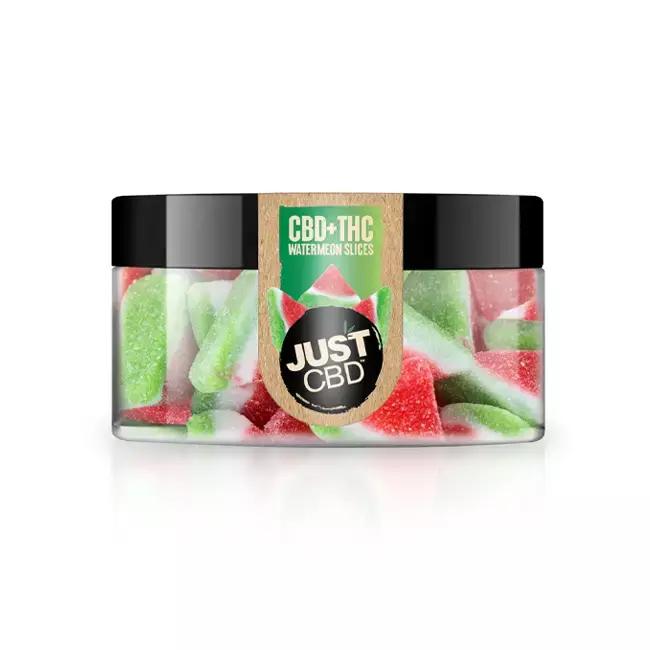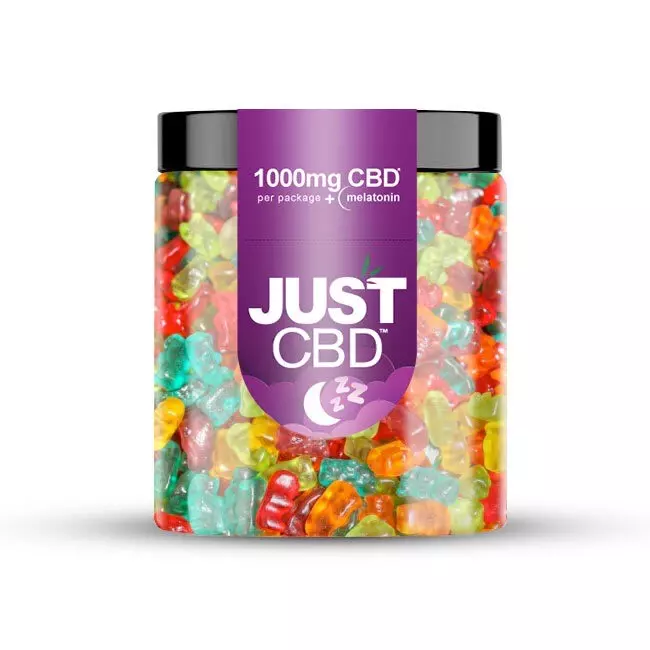Potential Benefits of CBD for Muscle Recovery
Athletes and fitness enthusiasts are always searching for effective ways to aid in muscle recovery after strenuous workouts. CBD, derived from hemp, has emerged as a potential natural remedy for inflammation and pain relief, leading many to explore its benefits for muscle recovery.
Anti-inflammatory Properties
CBD, short for cannabidiol, has gained significant attention for its potential therapeutic benefits, including muscle recovery and inflammation reduction. Some proponents suggest that CBD gummies may offer a convenient way to harness these properties post-workout.
Research suggests that CBD may interact with the body’s endocannabinoid system, which plays a role in regulating pain, inflammation, and muscle function. By modulating this system, CBD could potentially help alleviate muscle soreness and promote faster recovery after strenuous exercise.
Moreover, CBD exhibits anti-inflammatory properties that may reduce swelling and discomfort associated with muscle damage. This could be particularly beneficial for athletes or individuals who engage in regular physical activity.
Pain Relief
CBD, short for cannabidiol, has gained popularity as a natural remedy for various ailments, including muscle recovery and pain relief after exercise. CBD’s anti-inflammatory properties may help reduce soreness and swelling associated with strenuous workouts. Some studies suggest that CBD can interact with the body’s endocannabinoid system, which plays a role in regulating pain perception and inflammation.
While more research is needed to fully understand the benefits of CBD for muscle recovery, anecdotal evidence suggests it may promote faster healing and reduce post-exercise discomfort. CBD gummies offer a convenient and palatable way to incorporate this compound into your wellness routine.
Muscle Growth and Repair
Cannabidiol (CBD), a non-psychoactive compound found in hemp, has garnered significant attention for its potential therapeutic benefits, including its possible role in muscle recovery after exercise. While research is still ongoing, some studies suggest that CBD may help reduce muscle soreness, inflammation, and promote tissue repair.
One proposed mechanism by which CBD might aid muscle recovery is through its interaction with the endocannabinoid system (ECS), which plays a crucial role in regulating pain perception, inflammation, and muscle function. CBD is believed to modulate the ECS, potentially reducing inflammation and promoting a faster recovery process.
Furthermore, CBD’s anti-inflammatory properties may contribute to reduced muscle soreness and stiffness commonly experienced after strenuous workouts. By targeting inflammatory pathways, CBD could help alleviate these post-exercise discomforts.
Although preliminary research shows promise, further studies are needed to fully understand the efficacy and optimal dosages of CBD for muscle recovery. Consult with a healthcare professional before incorporating CBD into your fitness regimen, especially if you have pre-existing medical conditions or are taking other medications.
Mechanism of Action
Understanding how substances interact with our bodies is crucial to grasping their potential benefits and risks. This principle applies directly to cannabidiol (CBD) gummies and their possible role in muscle recovery. The mechanism of action describes the biological processes by which CBD exerts its effects.
CBD and the Endocannabinoid System
Cannabidiol (CBD) interacts with the body’s endocannabinoid system (ECS). This complex network of receptors, enzymes, and neurotransmitters plays a crucial role in regulating various physiological processes, including inflammation, pain perception, and sleep. The ECS consists of two primary receptors: CB1 and CB2. While CBD itself does not directly activate these receptors, it interacts with them indirectly by modulating the activity of endocannabinoids, naturally occurring compounds that bind to these receptors.
CBD’s Interaction with Receptors
CBD exerts its effects by interacting with the body’s endocannabinoid system (ECS), a complex network of receptors, enzymes, and neurotransmitters that regulates various physiological processes including pain perception, inflammation, and muscle function. The ECS consists primarily of two types of receptors: CB1 and CB2.
While CBD does not directly bind to these receptors like THC, it interacts with them indirectly. CBD is believed to influence the activity of endocannabinoids, naturally occurring molecules in the body that bind to CB1 and CB2 receptors. By modulating the release, uptake, and breakdown of endocannabinoids, CBD can indirectly affect the ECS’s functions, ultimately leading to potential therapeutic benefits for muscle recovery.
Scientific Evidence
Scientific evidence plays a crucial role in determining the effectiveness of any treatment, including those involving CBD for muscle recovery.
Studies on CBD and Muscle Soreness
Cannabidiol (CBD) has emerged as a potential natural remedy for muscle soreness and inflammation associated with exercise. Studies suggest that CBD may interact with the body’s endocannabinoid system, which plays a role in regulating pain perception, inflammation, and muscle function. This interaction could potentially help reduce muscle soreness and promote faster recovery.
Furthermore, CBD exhibits anti-inflammatory properties that may contribute to reducing swelling and discomfort after strenuous workouts. Some research indicates that CBD can help alleviate post-exercise muscle stiffness and improve range of motion.
While promising, the research on CBD for muscle recovery is still evolving. More studies are needed to determine optimal dosages and long-term effects. It’s important to consult with a healthcare professional before using CBD, especially if you have any underlying health conditions or are taking medications.
Limitations of Current Research
The current research on CBD’s effectiveness for muscle recovery is still limited. While some studies suggest potential benefits, more rigorous and large-scale clinical trials are needed to confirm these findings.
One major limitation is the lack of standardized dosages and formulations of CBD products. This makes it difficult to compare results across different studies and determine optimal dosages for muscle recovery.

Furthermore, research often relies on animal models or small sample sizes, which may not fully translate to human physiology and exercise responses.
Another challenge is the potential for interaction between CBD and other medications or supplements that athletes or individuals may be using.
Long-term studies are also needed to assess the safety and potential side effects of regular CBD use for muscle recovery.
Dosage and Usage
Determining the appropriate dosage of CBD gummies for muscle recovery is crucial for maximizing potential benefits while minimizing any possible side effects.

Recommended CBD Dosage for Muscle Recovery
There isn’t a one-size-fits-all answer when it comes to CBD dosage for muscle recovery. The optimal amount can vary depending on factors like body weight, individual metabolism, the severity of muscle soreness, and the potency of the CBD product.
A general guideline for beginners is to start with a low dose, around 10-20 mg of CBD, and gradually increase it as needed until you find what works best for you. It’s important to listen to your body and adjust the dosage accordingly.
Types of CBD Gummies for Athletes
Dosage and usage of CBD gummies for athletes vary depending on individual needs and body weight. A common starting point is 10-25mg of CBD per day, divided into two or three doses. It’s important to start with a low dose and gradually increase it until you find the optimal amount that provides relief without causing any adverse effects.
Different types of CBD gummies cater to specific needs for athletes. Broad-spectrum gummies contain multiple cannabinoids and terpenes, offering a wider range of potential benefits. Full-spectrum gummies include trace amounts of THC, which may enhance the entourage effect but should be considered by athletes with strict drug testing regulations.
Isolate gummies consist solely of CBD, making them THC-free and suitable for those seeking to avoid any psychoactive effects. When choosing CBD gummies for muscle recovery, look for high-quality products from reputable brands that provide third-party lab testing results to ensure purity and potency.
Considerations and Precautions
Before incorporating CBD gummies into your post-workout routine, it’s essential to consider potential interactions with medications, pre-existing health conditions, and individual sensitivities.
Potential Side Effects
While CBD gummies offer a convenient way to incorporate CBD, it’s important to consider potential side effects and precautions.
- Potential Side Effects: While generally well-tolerated, CBD can cause side effects in some individuals, such as diarrhea, drowsiness, changes in appetite, and dry mouth.
- Drug Interactions: CBD may interact with certain medications, including blood thinners, antidepressants, and anticonvulsants. Consult your doctor before using CBD if you are taking any medications.
- Dosage Considerations: The optimal dosage of CBD for muscle recovery is not yet established. Start with a low dose and gradually increase it as needed, paying attention to your body’s response.
- Quality Control: Choose reputable brands of CBD gummies that provide third-party lab testing results to ensure product quality and potency.
- Pregnancy and Breastfeeding: Pregnant or breastfeeding women should consult with their doctor before using CBD.
Drug Interactions
It’s important to consult with a healthcare professional to determine the appropriate CBD dosage, as recommendations can vary based on factors such as individual body weight, metabolism, and the severity of muscle soreness.
Individuals new to CBD should start with a low dose and gradually increase it as needed. Potential side effects of CBD may include drowsiness, dry mouth, diarrhea, and changes in appetite.
It is crucial to purchase CBD products from reputable sources that provide third-party lab testing results to ensure quality and purity.
Be aware that CBD may interact with certain medications, such as blood thinners and antidepressants. Discuss potential interactions with a healthcare professional before using CBD gummies if you are taking any medications.
Individuals with pre-existing medical conditions, pregnant or breastfeeding women, and children should exercise caution and consult with a healthcare professional before using CBD products.
CBD Legality
Considerations and precautions are essential when using CBD gummies for muscle recovery.
CBD legality varies significantly across different regions. Before incorporating CBD products into your routine, it is crucial to research and understand the legal status of CBD in your specific location. Some countries or states may have restrictions or limitations on the production, sale, or consumption of CBD products.
It’s also important to note that CBD products are not regulated by the FDA, meaning there can be variations in quality, potency, and purity among brands. When choosing CBD gummies, prioritize reputable brands that provide third-party lab testing results to verify their product contents and safety.
Buy the best CBD Gummies for your health
Order tasty cbd infused gummies via JustCBD
C4YL
Clementine Levy
- What To Do After Having Lip Filler - May 23, 2025
- What Are The Best Times To Take CBD Gummy Edibles - May 22, 2025
- How To Achieve A Youthful Look By Correcting A Downturned Smile - May 21, 2025
